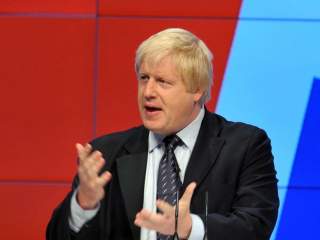All Brexit Is Local
Party politics have always driven Britain's troubled relationship with the EU.
All this means that Britain’s participation in the European project is highly susceptible to changes in the electoral calculus of the political parties. Europe will stop being attractive to mainstream Conservatives if it is seen as jeopardizing the health and vitality of Britain’s market economy. Labour will abandon its relatively recent Europhilic stance should Europe become a hindrance, rather than a help, towards sustaining a generous welfare state. Indeed, growing numbers of Conservatives already think that the EU is antimarket and that EU regulations stifle economic growth instead of promoting it. Several Cabinet ministers and the popular mayor of London, Boris Johnson, are campaigning for Brexit. In contrast, staunchly pro-European Conservatives are a rare breed. At the same time, revulsion at the EU’s treatment of debt-stricken Greece and opposition to the U.S.-EU Transatlantic Trade and Investment Partnership have demonstrated the enduring relevance of Old Labour’s anti-European politics. And faced with stubborn xenophobia in some quarters of Britain, Europe-wide rules on freedom of movement cause political embarrassment for politicians of all stripes. In short, neither party currently sees Europe as an unambiguous political asset. On the contrary, each has faced compelling incentives to harden their stance against Brussels.
Britain’s future in Europe is being decided not along the corridors of power in Brussels or even London, but on the streets of Britain when politicians go knocking on doors in search of votes. Policy towards Europe—including the very decision to hold a referendum on Brexit—has long been set by politicians whose primary concern is how their stance on Europe will play with key constituents, and by party leaders eager to keep their disparate electoral coalitions intact. This means that, even if the British people ultimately opt to remain within the EU, uncertainty will continue to plague cross-Channel relations. Simply put, British politics is too fluid to support a stable relationship with Europe right now; coalitions that were once reliably pro-European are now frayed, perhaps fatally so. Will resourceful leaders be successful at finding ways to exploit the European issue for electoral gain—either by building a new pro-European consensus, as they have in the past, or by playing on public antipathy towards Brussels, as has been the case in more recent years? Or will European policy be set by politicians who are content to follow public opinion rather than lead it? All that looks for sure is that Britain’s relationship with Europe will continue to be a hotly contested issue whatever the referendum’s result; the cut-and-thrust of domestic politics will all but guarantee it.
Peter Harris is an assistant professor of political science at Colorado State University. His Twitter handle is @ipeterharris.
Image: Flickr/BackBoris2012

